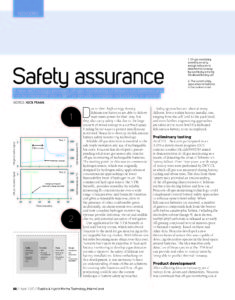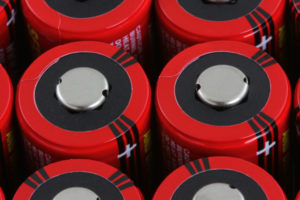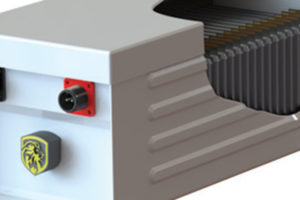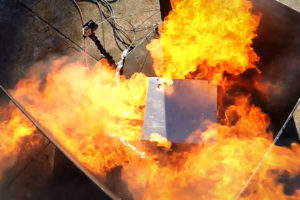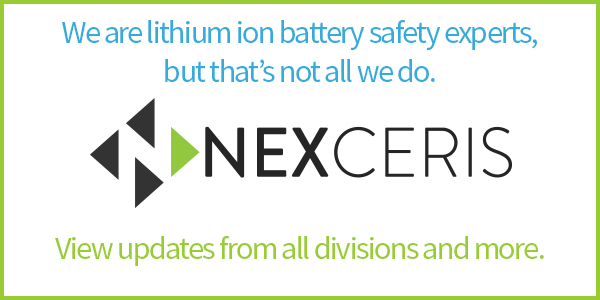Applications Engineer Nick Frank has written an article for the Electric & Hybrid Marine Technology International magazine focusing on Li-Ion battery safety, simply titled: Safety Assurance. The main goal of the article is to show how adding off-gas monitoring to either a Battery Management System (BMS) or as a stand-alone creates added protection through redundancy sensing. The article goes into detail around all the various tests the Nexceris technology development team has done to show early detection of battery off-gases well in advance of battery runaway effects.
Safety Assurance
A new technology provides off-gas monitoring of lithium-ion batteries and can be integrated into a BMS or provide complete redundancy in sensing.
Due to their high energy density, lithium-ion batteries are able to deliver maximum power for their size, but they also carry safety risks due to the large amount of stored energy in a confined space. Finding better ways to protect installations motivated Nexceris to develop its lithium-ion battery safety monitoring technology.
Reliable off-gas detection is essential to the safe implementation and use of rechargeable batteries. Nexceris has developed a patent-pending solid-state gas sensor platform for off-gas monitoring of rechargeable batteries. The starting point for this was its commercial hydrogen sensor, which was originally designed for hydrogen safety applications at concentrations approaching the lower flammability limit of hydrogen in air. The commercial hydrogen sensor, the NTM SenseH2, provides versatility by reliably measuring H2 concentrations over a wide range of temperatures and humidity and gives a repeatable response, even in the presence of other combustible gases. Additionally, an alarm system was created and now complete hydrogen monitoring system provide detection, visual and audible alarms, and the potential actuation of mitigation.
One application for the NTM SenseH2 is lead-acid battery rooms, which introduced Nexceris to the need for gas monitoring in the rechargeable battery market. With lithium-ion batteries becoming more ubiquitous than ever, Nexceris built on its expertise in lead-acid battery monitoring to develop a gas detection system to improve the safety of lithium-ion battery installations. Before embarking on…
Continue reading the article at Electric & Hybrid Marine Technology International magazine



